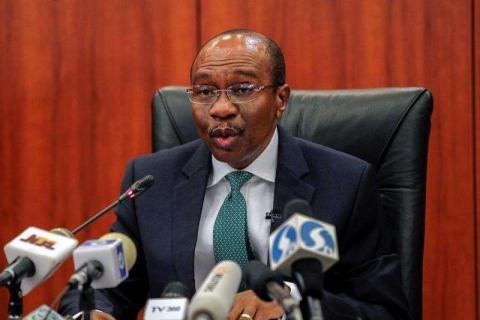
Emefiele said the three projects are funded by the Infrastructure Corporation of Nigeria (InfraCo).
The Nigerian government says it will toll the Lagos-Ibadan expressway, Abuja-Kano Road and the Second Niger Bridge upon completion to ensure their maintenance and also pay back loans used to construct them.
Godwin Emefiele, Governor of the Central Bank of Nigeria (CBN), disclosed this on Wednesday at the end of the 12th edition of the Bankers’ Committee Retreat in Lagos.

Emefiele said the three projects are funded by the Infrastructure Corporation of Nigeria (InfraCo).
“The Federal Government approached us to provide some kind of bridge funding; the bridge funding is almost about N170 billion, and we provided it so that those projects can move on with funding,” he said.
“The entire scope of those three projects, I am told is slightly above N1 trillion, but the numbers are being worked on.
“And I believe by the time the asset managers effectively come on board, the details of those projects and the remaining aspects of those funding would be coming in through debt and that is where the asset managers would come in with the entire scope and then we would know the detailed cost of those three projects.”
Meanwhile, Nigeria is broke and has been borrowing to fund its budgets and relying on loans to pay salaries.
For example, Minister of Labour and Employment, Dr Chris Ngige, while doctors were on strike over poor allowance, had in September 2021 confirmed that the Nigerian government under President Muhammadu Buhari borrowed funds from international sources to pay salaries of workers because of a shortfall in the country’s revenue.
Ngige had said the government took loans from foreign institutions like the World Bank to offset some recurrent expenditures.
Also, the Minister of Finance, Budget and National Planning, Zainab Ahmed, in April 2021 admitted that Nigeria’s economy was facing a difficult time, saying borrowing was inevitable.
She had said, “We have very low revenues, we have very high expenditures. What we have done so far is just to provide some stability to make sure salaries are paid, pensions are received every month; that we send funds to the judiciary and the legislature; that we meet our debt service obligations.
“That’s what we are doing. It also means we have had to borrow more than we had planned before the COVID-19 started because we need to still continue to invest in infrastructure using our national budget. We borrowed to invest in key projects such as roads, rail, airports, seaports and several other investments that are required in health and in education and upgrading the social standards and quality of life of our people and Nigeria is not unique as several countries of the world went into recession.
“Almost every other country has had to borrow more than it planned. It means we expanded our deficit very fast in 2020. 2021 is a year that we see as the year of recovery.
“So, FAAC (Federal Account Allocation Committee) reduces and whenever FAAC reduces, it is a very difficult situation and in the past one year, we have tried to fall back on some specific accounts that are meant to be saved; savings that when you have such a situation, you fall back on the resources and augment.
“So, we take funds based on Mr President’s approval either from Excess Crude or Stabilisation Account or in some cases, President approved for us to take funds from LNG (Liquefied Natural Gas) dividends. In the month of March, we had a shortfall of FAAC that was about N50 billion; we didn’t have enough accrued in any of those accounts other than some N8.5 billion that we took from the exchange rate differential account so we added that and we ended up with the FAAC of N605 billion.”